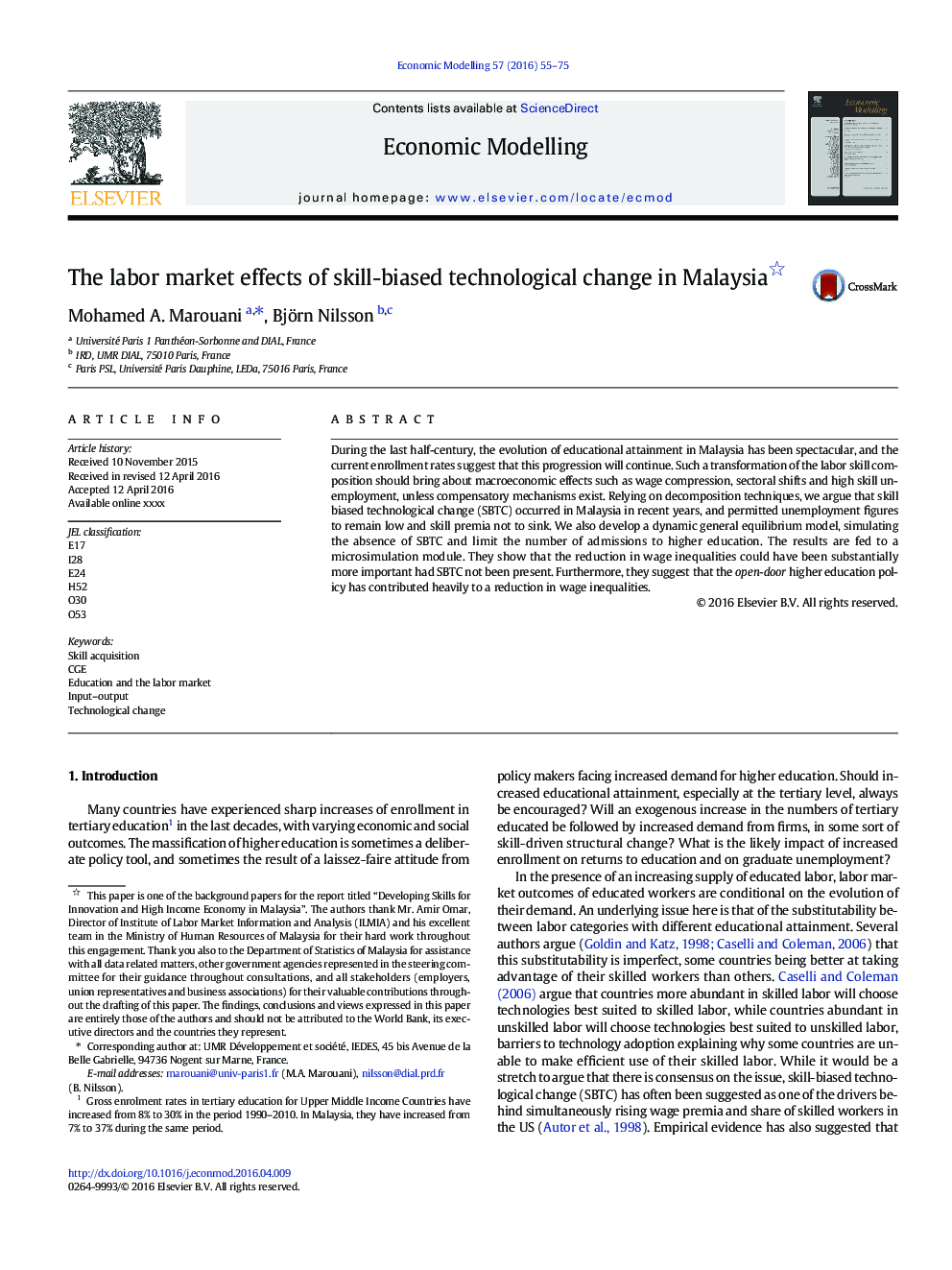| Article ID | Journal | Published Year | Pages | File Type |
|---|---|---|---|---|
| 5053347 | Economic Modelling | 2016 | 21 Pages |
Abstract
During the last half-century, the evolution of educational attainment in Malaysia has been spectacular, and the current enrollment rates suggest that this progression will continue. Such a transformation of the labor skill composition should bring about macroeconomic effects such as wage compression, sectoral shifts and high skill unemployment, unless compensatory mechanisms exist. Relying on decomposition techniques, we argue that skill biased technological change (SBTC) occurred in Malaysia in recent years, and permitted unemployment figures to remain low and skill premia not to sink. We also develop a dynamic general equilibrium model, simulating the absence of SBTC and limit the number of admissions to higher education. The results are fed to a microsimulation module. They show that the reduction in wage inequalities could have been substantially more important had SBTC not been present. Furthermore, they suggest that the open-door higher education policy has contributed heavily to a reduction in wage inequalities.
Related Topics
Social Sciences and Humanities
Economics, Econometrics and Finance
Economics and Econometrics
Authors
Mohamed A. Marouani, Björn Nilsson,
